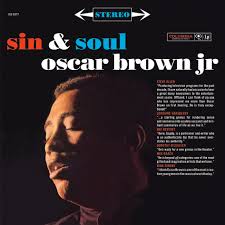My whole musical life, I've heard snide comments about "chick singers." Maybe the level of enmity jazz instrumentalists harbor toward vocalists doesn't quite rise to that between the Houses of York and Lancaster, but there is definitely something there.
 |
| War of the Roses |
Mostly the battle is carried out
sub rosa-among the boys-and anecdotes are few in the jazz history I've read. Buddy Rich and Frank Sinatra exchanging blows and engaging in various forms of mutual psychological torture in the Dorsey band in the 1940's doesn't stand as a fair example, as it involves two of the biggest egomaniacs in the history of jazz/popular music. Also, while sex no doubt played a part there, it's heterosexual sex that keys this story. Seems like where there's smoke, jazz and sex, there's always been fire.
There's
a thesis online by Ariel Ann Alexander with reasons why female participation as instrumentalists in jazz is limited. Many subjects of her study note that band members seem more interested in hitting on them than in playing with them. They also note faculty members who tried to steer women away from playing instruments toward singing and generally tried to get them to tart themselves up for performance. Sexual harassment by teachers was also widely noted.
So, lust is a touchstone. The other 7 deadly sins I'm accusing jazz musicians of (at least in this post), are pride and envy.
In
previous posts I have tried to make a case for the importance of vocals in sustaining jazz. My premise is that, while instrumentalists can be credited with the major musical advances, there is a feedback loop with singers. And, that vocalists and instrumentalists who sing have consistently connected with larger numbers of people. With rare exceptions, even the most gifted jazz instrumentalists would have been hard-pressed to sustain their careers without in some way working with or on the same bill as vocalists.
Jazz musicians may not have parsed it out this consciously, but their egos know it even if they don't.
One way to defuse this emasculating predicament is to reduce women vocalists to second class citizens and the easiest way to do this is to reduce them to sexual objects-or at least "the other" and not worthy of a hang with the boys. Nothing has changed, of course. You've simply wrapped your self-delusion around a flimsy sexual chimera, which you then try to project onto someone who has probably invested as much sweat equity in her art as you have in yours.
I understand the problem. Thousands of hours wrestling with your horn, you think, entitles you to something. Well, no. It entitles some geniuses (not even all), to something, but not to you and me. It entitles you to play and maybe to a few bucks. If you get a fortune cookie that predicts a ticker tape parade down Broadway, ignore it.
I've been tough on us jazz guys, but we are not really loathsome creatures. No more than most. Some of us may take the more arthritic aspects of jazz mythology too seriously and that doesn't help, but we can be very generous people. So suck it up, guys and relax. Man or woman, our trip on this paper moon sails over the same cardboard sea.

















